Which Generation Is Screwing Up/Saving The World The Most?
Ah, Millennials.
For quite a while this century, and to a degree still, we've heard just how influential the Millennial generation is to society. They've revolutionized all kinds of things, form work places to entire industries. They are at once responsible for all the good taking place in the world, and singlehandedly causing its demise.

Is this guy what you imagine when you think of Millennials?
It's interesting how such perceptions begin. A few decades ago, similar things were being said about the Baby Boomer generation. Not surprising, since a lot of Millennials are actually Boomer offspring.
What's even more peculiar, if not just flat out hilarious, is that the term Boomer became a derogatory term, which according to Wikipedia is:
...a retort for perceived resistance to technological change, climate change denial, marginalization of members of minority groups, or opposition to younger generations' ideals.
If anything, that's the exact opposite of what the Boomers have been known for. From free love to environmental causes, they were the younger generation that championed all of those things during the Vietnam Era and beyond.

Believe it or not, these guys probably are Boomers.
In reality, what's become of the Boomers is an age and maturation cycle that eventually happens to all generations at some point, regardless of how rebellious or counter culture they may be to start with. Some of these folks actually become thought leaders, scions of industry, federal officials, etc. Growing up and being an adult, it seems, changes perspectives.
Oldest Millennials Turn 40
Believe it or not, the oldest Millennials turn 40 this year. So, when we say Millennials now, just like some are saying "Okay, Boomer," we might not even be talking about someone from that generation at all. Generation Z is now the youngest group with college age participants, where a lot of disruption of societal norms can take place. The oldest of them turn 24.
In pondering this idea of blaming youth for societal ills, while simultaneously lauding them for the same upheaval, I wondered just how influential the Millennials have been, compared to any other generation which could have some say in what our society looks like today.
The Breakdown
To set the stage, here are the generational windows that we'll be talking about from here on out. If you've ever wondered which generation you fall into, here's your chance.
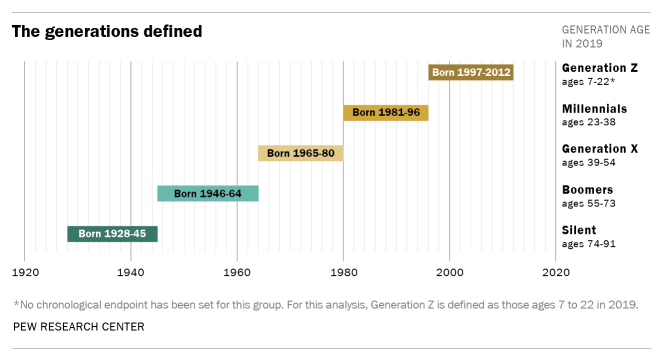
The generational groups and their birth years come from the Pew Research Center website. Please note that the ages displayed are for 2019.
Silent Generation—1928-1945
These are those who were essentially born just before and during the Great Depression, through the end of World War II. If there's ever been a time in somewhat recent history that would be a terrible time to be born into, that's got to be it. No other period of time, not even the Cold War era, really measures up as far as I'm concerned.
Why the silent generation?
I'd say a couple of things. First, children of their day were expected to be seen, not heard. Secondly, they may not have been as hard on or as disciplinarian with their children because of all of what they and their parents endured.
On a personal note, both my parents were born in this generation, albeit closer to the tail end. I'd say my Dad was much more the strong silent type as I was growing up. My mother, not so much, so there's that.
Baby Boomers—1946-1964
So called because of the major increase in births that took place after World War II, Boomers benefited from a post-War economic boom too, that lasted throughout most of their childhood. It could also be said that the frugality of their parents and grandparents out of necessity led to an abundance of excesses. Some of it may have been for the better, but a lot of it, not so much, or the jury is still debating the ramifications.
Generation X—1965-1980
Why X? Well, it's hard to define. Literally. X could be a constant, or it could be a variable. Until it's determined, X remains an unknown. For better or for worse, that's more or less the perceived defining characteristics of Generation X.
The Xers have also been known as the Latchkey Generation, because kids would come home from school to an empty house until their parents got off work. They've also been called the Forgotten Generation, because of their supposed invisibility, or lack of major contributions to societal change.
In other words, one could say, they haven't been widely blamed for anything, like the Boomers have been and the Millennials more recently. Since this is my generation, I like to think of Generation X as us quietly going about our lives, living it in the best way we know how, and leaving the glory and blame to others.
Millennials—1981-1996
I've somewhat introduced them already, but I will add that their disruptions as the youngest generation are beginning to wane as the next group, Generation Z, begins to take shape. Millennials will still have plenty of say for years to come, but they will no longer be the youth, but rather the generation that needs to take on the responsibility their parents had.
Both my sons are Millennials. If I were to base their generation solely on them, it would have to be good-hearted, devoted and willing providers for their families, yet too often cynical and down about their circumstances and the trajectory of the world as a whole, thanks to their predecessors. They also tend to be distracted by sports and video games.
I think a lot of that describes the Millennials as a whole. They want change. If they don't like the status quo, they call it out and they move on to something else. Many of them are in that stage of life where they have all the answers, not so much because they do, but more because it seems like no one else does, so what's the difference?
The Greatest Generation And Generation Z
The generations before the Silent and after the Millennials will not be looked at for the purpose of this post, because I'm limiting the scope of influence to the last 20-25 years. While the Greatest Generation definitely influenced the next two after it, their personal contributions have diminished over time simply because they've aged and gone the way of all the Earth. On the other end of the spectrum, Generation Z isn't quite old enough to tell quite yet who they will be or what they will do.
The Experiment

As the title of this post implies, I've been interested in this concept of blame for the world's ills and trying to determine if there truly is one generation or another responsible for our current predicaments. Conversely, is there any particular age group which could be succeeding in bailing us out?
What I've done is take a look at different sections of society which seem to have the most disruptors or sway when it comes to cultural direction. Since the list became exhaustive almost immediately, I'm going to limit these fields to the ones that are not only among the most influential or pervasive, but also the ones that are the easiest to identify.
The three categories are:
- Tech
- Government
- Entertainment
As I said, I could have added in others like Education or Media, but I'm afraid I'll be whittling down my lists just for the sake of length, anyway. Perhaps another time.
Tech
I'll start here because on HIVE, with quite a few developers running around, on an emerging force of technology such as cryptocurrency and the blockchain, there's a lot of us here who see technology as a central force, for good or ill.
Of the three categories I'll be listing the names of main contributors, Tech is the one that I'm the most surprised at as to where the generations fell.
How's that as a teaser?
Here's the list:
The Big Five
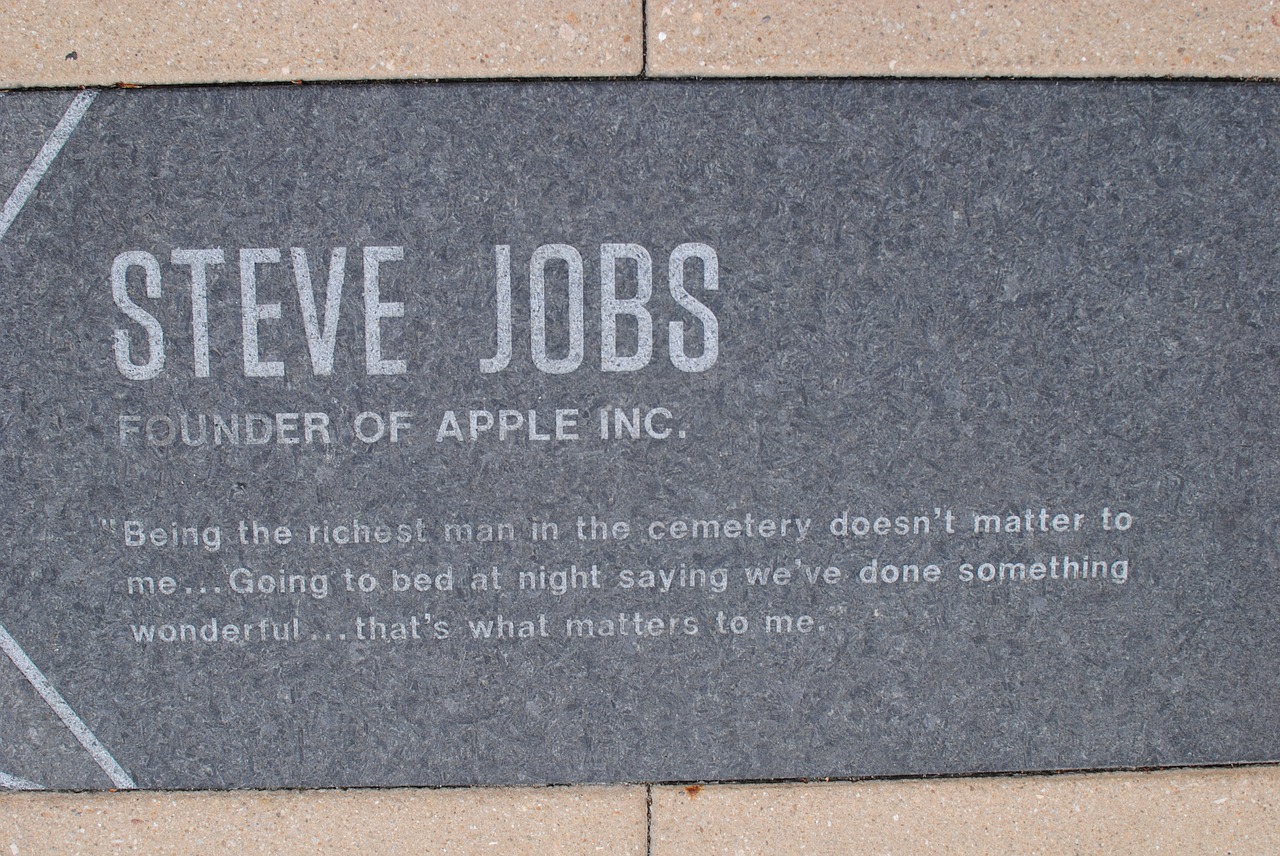
We'll start off with the tech conglomerates that are widely recognized as wielding the most influence in the world currently. While CEOs and other personnel have changed over the last 20-25 years, I'm focusing in on founders, the individuals who helped create these mammoths of innovation. I've done the same with the rest of the Tech list.
- Mark Zuckerberg, et al—Facebook—Millennial. Like most of the Tech list, there was more than one founder of Facebook, but the rest of his dorm room buddies that helped to launch this social site are basically his age.
- Larry Page, et al—Google—X
- Jeff Bezos—Amazon—Boomer
- Steve Jobs, et al—Apple—Boomer
- Bill Gates, et al—Microsoft—Boomer
Just for the record, this isn't so much where the surprises were. Microsoft and Apple are the oldest companies, dating back into the 70s, so their founders would have to be older. Google and Amazon are somewhat contemporaries, both from the 90s, so again, Bezos being on the tail end of the Boomers while Page is firmly in the middle of the Xers, are both to be expected. Zuckerberg is perhaps the poster child for Millennial Tech, so he's the most obvious of them all.
Tech Second Round

Here's where I think it gets interesting. I'll admit to being biased, though.
- Elon Musk, et al—Tesla—X
- Chad Hurley, et al—YouTube—X
- Jack Dorsey, et al—Twitter—X
- Sean Parker, et al—Napster—X
- Tom Anderson, et al—Myspace—X
- Reed Hastings, et al—Netflix—Boomer
- Evan Spiegel, et al—Snapchat—Millennial
- Zhang Yiming—TikTok—Millennial
- Kevin Systrom, et al—Instagram—Millennial
- Musk, Peter Thiel, et al—PayPal—X
- Pierre Omidyar—eBay—X
My surprise? The number of Xers on this list! Yes, some of these folks and their creations aren't as prominent now as they were (I'm looking at Napster and Myspace in particular, but to lesser degrees PayPal and eBay), but at the time they came out, until they were superseded by someone or something else, they were the It child, and brought about change in the burgeoning digital space.
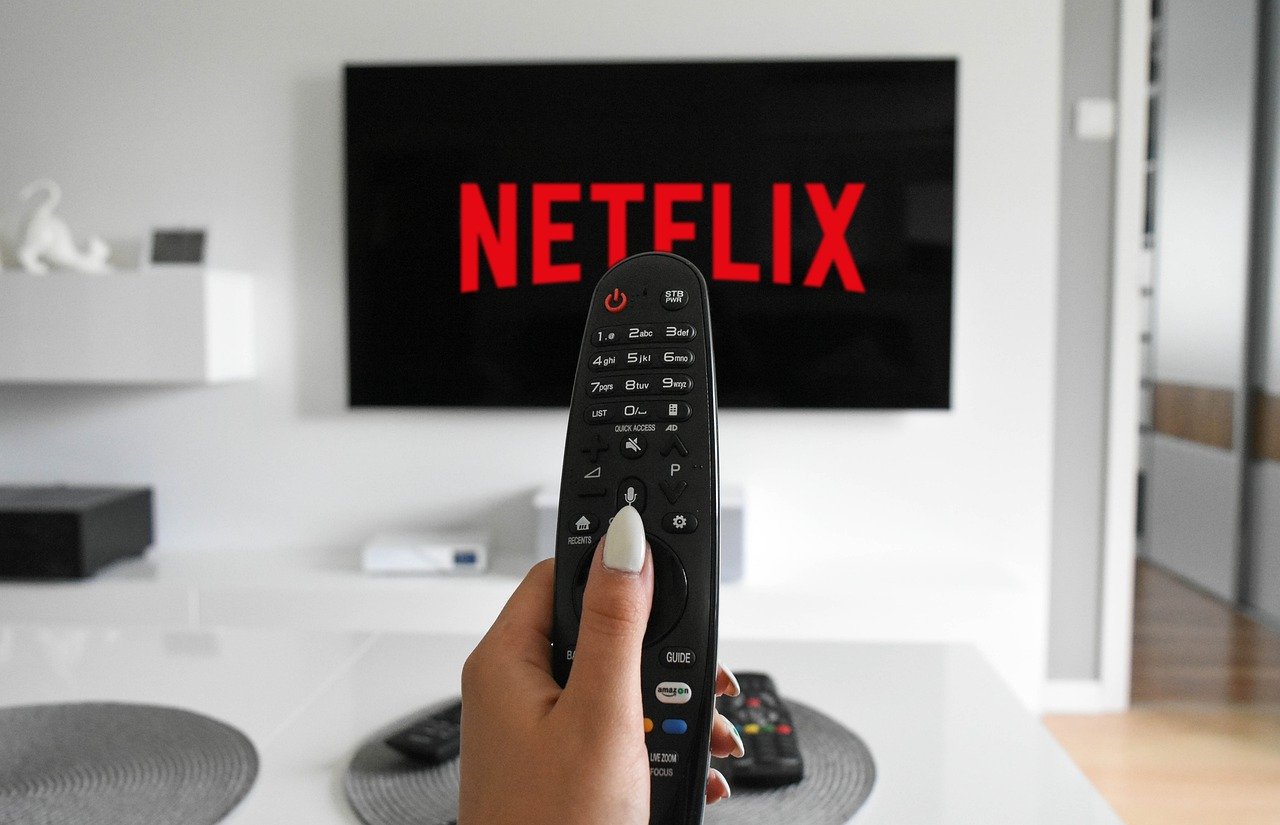
Also, I wasn't expecting the founders of Netflix to be in their 60s.
You Say This Is About Tech, But No Crypto?!
Yeah, yeah. Cool your jets. I left that as its own special subcategory.
In making this list, I went after only a few of the largest chains in terms of capitalization. Again, there are surprises here, at least for me.
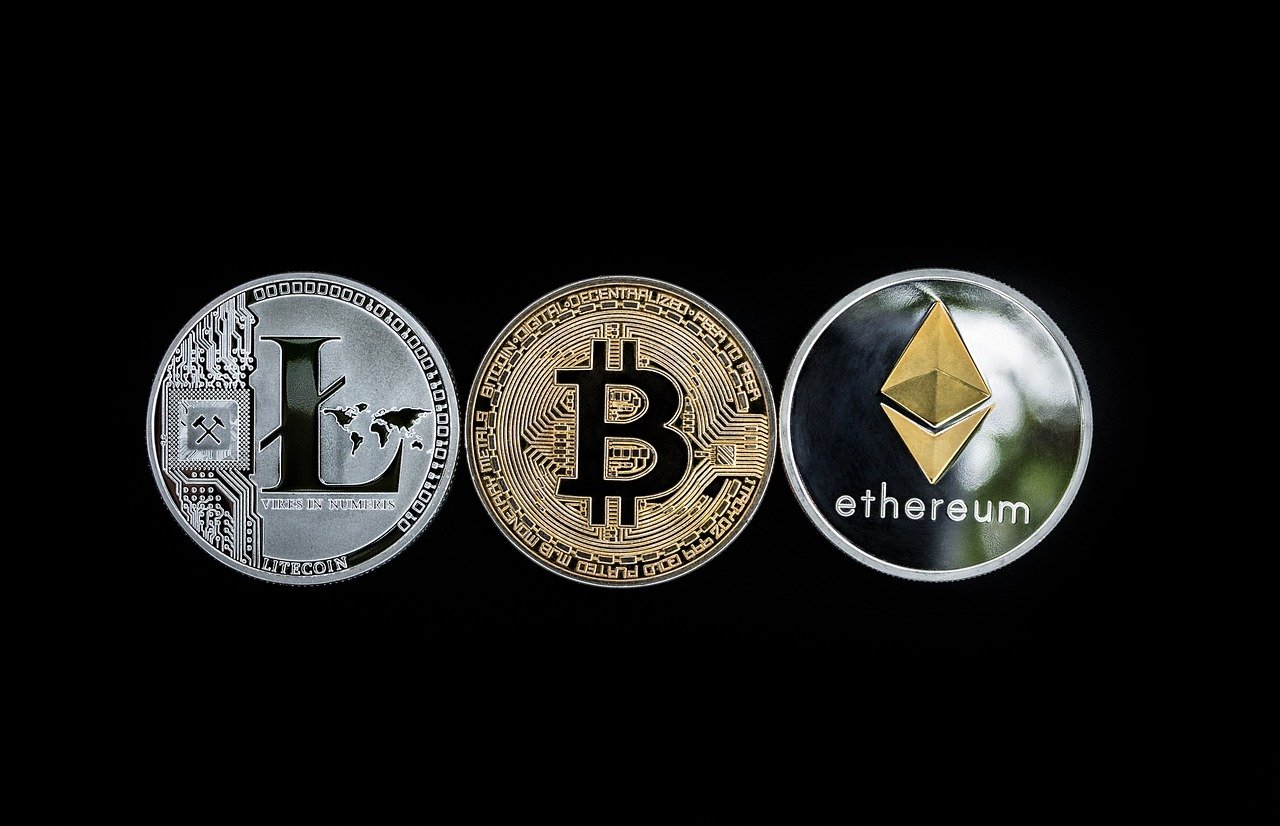
- Craig Wright, Satoshi Nakamoto, (or whoever the heck really invented it)—BitCoin—X. Obviously, this needs some explanation, since the actual identity of the creator of BitCoin is yet to be determined. Of those who have been singled out as Nakamoto (which is somewhere around a half dozen), the prevailing ages by far put them all solidly into Generation X.
- Vitalik Buterin—Ethereum—Millennial. At 27, Buterin is the youngest on this list, and on the younger end of the Millennials to boot.
- Charlie Lee—LiteCoin—X
- Sergey Nazarov—Chainlink—Millennial
- Jed McCaleb—Ripple/Stellar—X
Not surprised by the Millennial contributors here. Just happy to see so many Xers involved, too.
I suppose the Tech list could go on and on, but hopefully I've hit most of the major ones that have come into prominence within the last 20-25 years.
Time to move on to the next category.
Government
It's possible that these lists might seem American-centric. In the case of Government it's because I live in the United States and therefore are most familiar with the politicians here. Taking the generational time frames I've provided above, you're welcome to see where your own highly influential state officials fall.
U.S. Presidents In Office Over The Last 20-25 Years
Note: Jimmy Carter is the only president still living who is not on this list. For the record, he's 96, and therefore a part of the Greatest Generation.
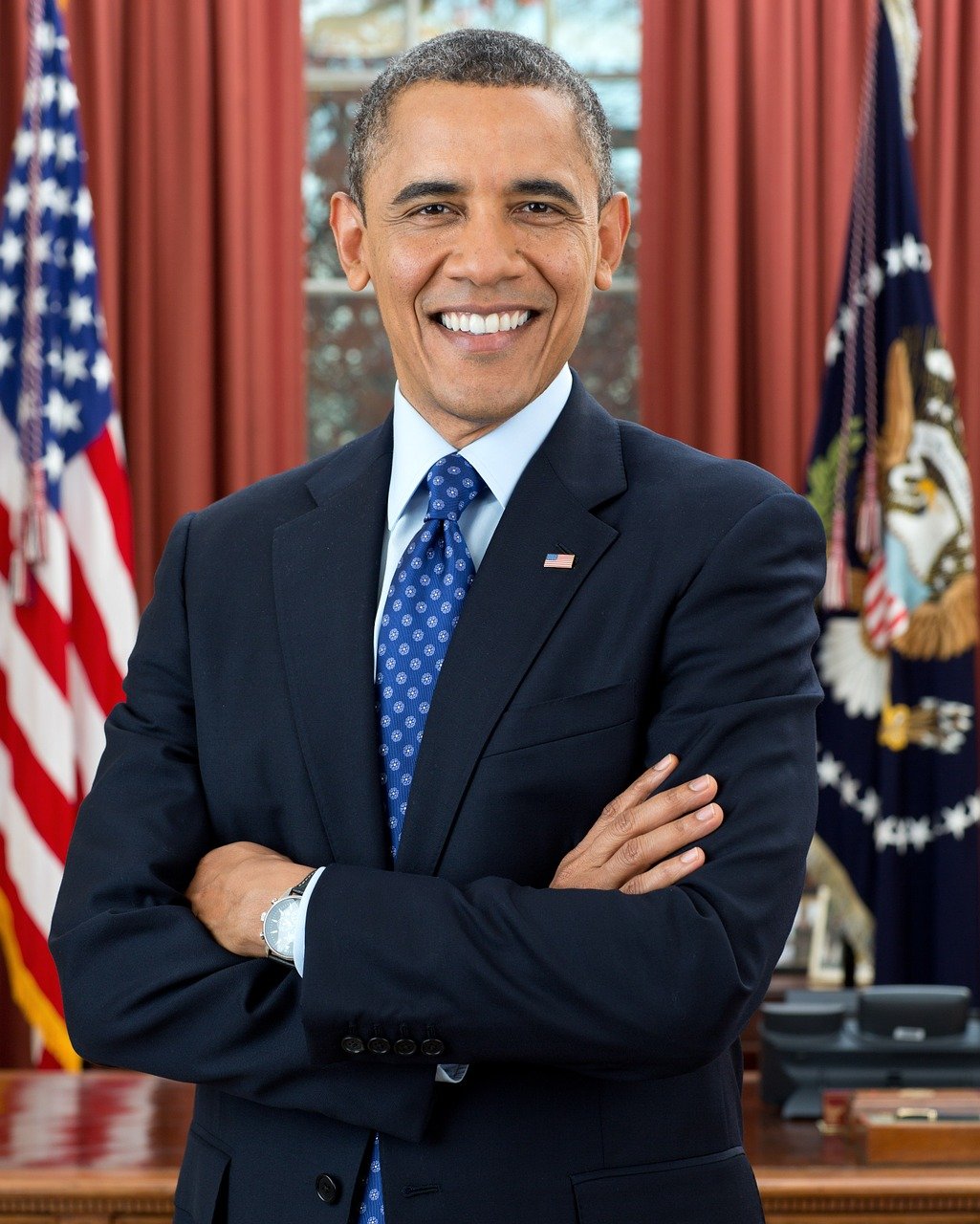 Former U.S. President Barack Obama.
Former U.S. President Barack Obama.
- Bill Clinton—Boomer
- George W. Bush—Boomer
- Barack Obama—Boomer
- Donald Trump—Boomer
- Joe Biden—Silent
This entire category is where we see the Boomers wielding most of their influence. They fought against the Man, and now, by in large, they are the Man. What's interesting to note is, after four successive Boomers as Commander-in-Chief, our newest president comes from an older generation. Given his age (Biden turns 79), the likelihood of their being another president from the Silent generation from here on out is pretty small.
It's also interesting, given the "Okay, Boomer" mentality prevalent, that a younger person was not selected. But of the major Democrat candidates this time around, Biden's main challenger in the primaries was another member of the Silent Generation—Senator Bernie Sanders.
U.S. Senators, House Members Or Well Known Politicians
Nancy Pelosi—Speaker of the House—Silent
Chuck Schumer—Senate Majority Leader—Boomer
Mitch McConnell—Senate Minority Leader—Silent
Mike Pence—Former Vice President—Boomer
Kamala Harris—Current Vice President—Boomer
Bernie Sanders—Senator—Silent
Lindsey Graham—Senator—Boomer
Mitt Romney—Senator, former Republican Presidential Nominee—Boomer
Dianne Feinstein—Senator—Silent
Elizabeth Warren—Senator—Boomer
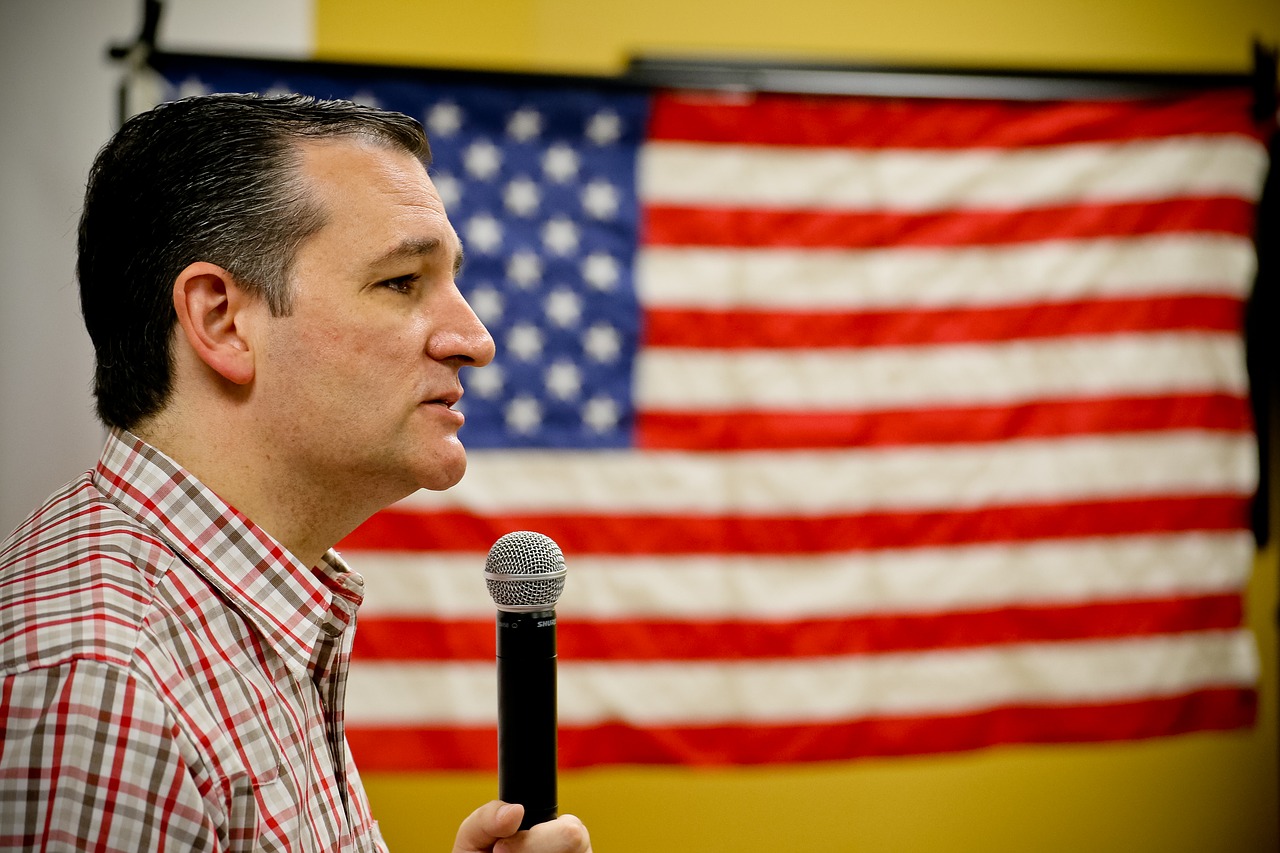 Senator Ted Cruz.
Senator Ted Cruz.Ted Cruz—Senator—X
Mike Lee—Senator—X
Rand Paul—Senator—Boomer
Alexandria Ocasio-Cortez—House Of Representatives—Millennial
Hillary Clinton—former First Lady, Senator, Secretary of State, Democrat Presidential Nominee—Boomer
Lots of Boomers here. I didn't go through the entire list of Senators, but I suspect that more fall into the Boomer time frame than not.
Okay. Time for the last of the Governmental types.
The U.S. Supreme Court
The list includes all the current justices plus one.
 Supreme Court Justice Sonia Sotomayor.
Supreme Court Justice Sonia Sotomayor.
- John Roberts—Chief Justice—Boomer
- Clarence Thomas—Boomer
- Stephen Breyer—Silent
- Samuel Alito—Boomer
- Sonia Sotomayor—Boomer
- Elena Kagan—X
- Neil Gorsuch—X
- Brett Cavanaugh—X
- Amy Barrett—X
Since she was on the court up until her passing late last year:
- Ruth Bader Ginsburg—Silent
Thanks to the last four appointments, the Boomers and the Xers are now evenly matched on the Supreme Court.
The last three, Gorsuch, Cavanaugh and Barrett, were all appointed within the last four years. While some will no doubt say they all have conservative leanings and therefore will vote on cases accordingly, I'll say it's still too early to tell what their individual lasting effects will be on the Court, and therefore U.S. Law.
Okay. Last category.
Entertainment

Is crowd surfing still a thing?
The folks on this list are either actors or musicians. They show up here primarily because they made some other list—appearing in some of the highest grossing movies or most popular TV shows, or having some of the highest selling or most popular songs.
Unlike the rest of this list, their influence on culture or society is probably more subjective and perhaps limited to a degree. However, I think it's safe to say they held some sway within the last 20-25 years or at least echoed and thereby helped to perpetuate prevailing philosophies, behaviors and cultural norms.
 Singer, Songwriter Taylor Swift. Freepngimg.com
Singer, Songwriter Taylor Swift. Freepngimg.com
Here are the entertainers, in no particular order:
- Dwayne Johnson—Actor—X
- Samuel L. Jackson—Actor—Boomer
- Matt Damon—Actor—X
- Tom Cruise—Actor—Boomer
- Chris Evans—Actor—Millennial
- Robert Downey Jr—Actor—X
- Gal Gadot—Actress—Millennial
- Melissa McCarthy—Actress—X
- Meryl Streep—Actress—Boomer
- Sofia Vergara—Actress—X
- Angelina Jolie—Actress—X
- Beyoncé—Singer—Millennial
- Adele—Singer—Millennial
- Taylor Swift—Singer—Millennial
- Lady Gaga—Singer—Millennial
- Eminem—Singer—X
- Jay-Z—Singer—X
- OutKast—Band—X
- The Strokes—Band—X
- Coldplay—Band—X
- Green Day—Band—X
Of the three categories, this one in particular trends younger than any other. Also, it's probably the hardest category to maintain a lasting influence. Movie genres come in and out of style, and musical tastes change more often to something new than they return to something old.
Conclusions?
If we look solely at the individuals behind the Tech, Government and Entertainment unfolding before us, it's harder to pinpoint which individual age group wields the most power or influence, and therefore, depending on your perspective, can therefore be blamed or commended for the state of society today.
In the case of Tech and Entertainment, the fields are fairly mixed, but will probably be trending younger more quickly than say, Government. What's been happening in both cases is that an older generation's tech, movies, television shows or songs have been largely appealing to the group following it. The older folks tend to become the idols or admired, but just as easily transform into the scorned and cast aside if they change their minds on certain subjects, or don't manage to keep up with where the music is going.
Government, however, seems to be one of the more enduring sections of society to hang out in, and thanks to laws, regulations and policies, as well as the resources to enforce them, wields the most influence of all. And of the three groups, the Boomers are the most in charge of Government, at least in the U.S., than any other generation.
Personally, I have no problem laying a majority of blame at the feet of Boomers, simply because, from young rebels to the gatekeepers, the path we are on has largely been set forth by them, and so far, nothing and no one have deterred it.
What To Do?
Can Tech, as many here might think, turn things around? Will it be the minds of the younger generations which actually solve the most entrenched and complex of societal problems through algorithms and intuitive interfaces? Can we innovate our ways to a freer world while Government continues to legislate it's own brand of morality, and thus control?
I think we're still in the process of finding that out. However, there will need to be many more changes taking place in the area of Tech, for the better, and soon, or else the ham-handed fists of government will continue to hold an ever tightening death grip on the individual and society as a whole.
For better or worse, like it or not (and I certainly have my reservations), the solutions will increasingly come from the younger generations. Be it a return to some basic principles that should never have been abandoned, or discovering new ways to bring sovereignty to the one, Millennials and their predecessors will be at the forefront of its development, and its use.
For, in reality, Millennials as a disrupting force has been more about what they adopt and consume, and less about what they're able to create or produce. That might change over time, but it might not, either. Consumers tend to rely on what they're spoonfed. They might be critical of what they're getting, want something more, and even bite the hand that feeds them, but unless they actually come up with alternatives themselves, there won't be any lasting tranformation.
Forcing employers to change how and where the work is done because their youthful employees don't want the stress and aren't as interested in ownership of things as they are in experiences and the freedom to have them, is one thing. Coming up with the solutions that will endure and still ensure the work gets done, is entirely another matter.
At some point, the Millennials will be in charge. Will they do better than their predecessors, or will the generations to come end up saying to them the equivalent of "Okay, Boomer" because they still managed to screw it up?
At this point, as the well-worn cliché goes, it's anyone's guess.
As always, you're welcome to share yours.
Images sources—Pixabay unless otherwise noted
It’s definitely a mix across all of the spectrum here. I like that in some ways but in others I don’t. It’s dominated by different groups but tied back to money and influence. I think looking at the money and influence that gets the Congress critters and approved celebrities where they are is a useful exercise perhaps. I’m guessing most of it is silent or boomer generation with an X in there occasionally. I think the focus on the public ones is a bit too much, by design of course, so that the string pullers get to hang back and just dictate. Maybe a different idea than what you had but I had that thought while reading!
One thing that is interesting is there’s more X than people realize on there.
Hey, @cmplxty.
It is a different thought, but I like it. It would be nice to know, first of all, who those shadowy string pulling characters are, and then how old they are. George Soros is often singled out, but there's got to be more. Way more. He's from the Silent Generation, by the way. He'll turn 91, so odds are he won't be around to influence things for too much longer, unless he's found the fountain of youth or something else. That doesn't mean someone won't take his place.
I wonder if many of the string pullers are actually out front and operating in plain site simply because it's easier to do and deny than it is to keep conspiracy theorists off your trail when you're still neck deep in secret societies. It's kind of like the government releasing UFO footage during the early days of the pandemic. :)
My guess is, you're right as far as to which generational groups they belong too. I've got to believe that most of those string pullers are getting up there in age, since once they've gained power, they tend to use it to secure more. Eventually, there is that pesky issue of mortality, though. Unless shapeshifting lizard people are actually taking over. :)
I have only one question:
Does the generation of electricity with a vegetable and slab of butter, alter their flavors?
Hey, @lucylin.
Is that butter? I thought it was cheddar cheese. :)
Pixabay can be funny at times. I type in a keyword, in this case, experiment, and that's an image I get. I think, Cool. I'd love to power a light with a carrot or slab of cheese. I mean, we generally have a carrot or two in the refrigerator along with cheese. So, voila, it's in my post. :)
I always wonder when I send things out into the HIVEsphere what people are going to take away from the post. :)
ok, Mr. Pedant, lets say, instead,
" does a carrot and any block of dairy produce diminish in taste, if it's been used for generating electricity?"
....some people, Sheesh!....lol.
Don't take what I see in a post as any barometer of , well...anything, really...(it all depends on my mood)
Okay, when you put it that way:
Yes, they do, because they're discharging 'electro'-lytes! :)
I'm glad we resolved that - I wasn't gonna sleep tonight...Thanks!
Congratulations @glenalbrethsen! You have completed the following achievement on the Hive blockchain and have been rewarded with new badge(s) :
You can view your badges on your board and compare yourself to others in the Ranking
If you no longer want to receive notifications, reply to this comment with the word
STOPCheck out the last post from @hivebuzz:
This has been a thought provoking topic for me, but only in the last couple of years. I think my POV may ago be a bit different, having grown up in the UK rather than the US where post war experiences were quite different. Until recently, my encounters with the generation idea was the boomer generation were the ones both in the post war baby boom and generation X (myself) were their children. For me generations are grandparents, parents, children, so I thought that was how it worried wither, but I don't think it was really dissected back then like it is today. Incidentally, my grandparents are what the graph would term the greatest generation.
My sister had her son early and he is generation Y (now called millennial), again making sense to me at the time with the generations and they were called that because Y comes after X. So I naturally assumed my children would be Y, but my eldest was the one who taught me the latest generation divides are by the years they're born, so my girls are apparently gen Z. The labels didn't matter to me, it was always just a fun concept on how the decades we grew up in gave us such different experiences, but now it seems to have become a blame war.
Currently the millennial seem to blame the boomers for everything they perceive they can't do or have, due to a way of life they see them having set in motion. Yet what they blame on the boomers, I never saw. Some of this could be due to what country we're looking at. As an American you describe a post war boom, which was certainly happening in the US. However, for Europe (and even Australia to an extent) it was a different story. My father remembers the post war rationing (born 1949) which continued for quite a while after the war. Australia too had the "make do and mend" philosophy happening at this time. The UK was rebuilding after the bombing and helping to rebuild a blitzed Germany too, so I believe it continued for a bit longer in Europe.
Admittedly, the boomers gradually saw am improvement in life and got to experience the support of a welfare system, but they knew how to sacrifice to be able to keep a roof over their families heads and feed them. They had fewer children, so they could give them a better start than they themselves experienced. They had the chance to get on the property market, but it didn't come without careful budgeting and going without luxuries.
The millennials are struggling to get on the property market and it's not easy now. However, I also see them with the latest technology, the latest phone plans, they don't want to walk anywhere, but have to drive everywhere. All the while complaining that the boomers consumption has caused the economic and ecologic problems they're having to deal with? Boomers may have paved the way for gen Y and Z to have these opportunities for luxuries, but each generation following them have actually been the ones to consume more and more. Perhaps we are the ones who need to evaluate our choices. It's probably easier for me as a gen X to do so, because I've seen the example with my parents and grandparents of how to make do. Yes, my parents are now comfortably retired and I don't see that easy a future even for the Xs, but they fought and sacrificed to get where they are and are possibly lucky enough to be the last generation to experience this.
Now, looking at your statistics on which generations are sitting where, I'm starting to think that the blame on the boomers could be triggered by the fact that they have been running America for the last few decades! 😂 The amount of gen Xs in the technology industry makes sense, because this was the first generation to have these opportunities and this sudden jump forward in technology which was likely triggered by the war time push in technology (necessity being the mother of invention). The following generations can continue to build on this.
I do think we need to the a step back on this blame game and realise that experiences are a bigger factor in how each generation and person develops, with experiences varying from country to country as well the time that you grew up in. The world currently seems to be focusing on America's problems and bringing them into their own countries where they don't fit and it's getting disconcerting. I'd rather be focusing on the good we can learn from each and every country. At the moment America is fast becoming the target of resentment and blame. Although, on the positive side that's taking the attention away from the Brits and the resentment of what the British Empire did. 😉😆
Anyway, I'll leave it there, before it becomes a book!
It's become a book but a great one! I think this separation into all kinds of categories is a bit crazy. More ways to divide and classify people that really doesn't do a whole lot! Can't we just be parents, grandparents and kids? Lol
!ENGAGE 50
It does seem to stay more friendly when we keep it simpler, doesn't it. 😁
ENGAGEtokens.Hey, @minismallholding.
I wondered as I made these lists just how American-facing it would be. I've always thought of the generations as a worldwide phenomenon, but from what you say, the experiences differed widely.
I believe it took a while for the U.S. to recover after WWII, as well, since they went from around the clock war production to something much less. I was more or less thinking of the better part of the 50s, when the economy picked back up significantly.
The baby boom started before that, though. :)
But it's true. Other than Pearl Harbor, we didn't need to do much rebuilding on our end, though I've understood the U.S. contributed something to the European rebuilding efforts.
re: learning from each other
That would be great. Blame games rarely solve anything. However, knowing who is in power and where they're leading us is something more of us need to be aware of, I think. We often think about political directions, liberal or conservative, whatever it might be elsewhere, but since we've got the "Hey, Boomer" ageist thing happening, too, I figured a look at what age groups were doing what would be beneficial and maybe enlightening.
I wasn't aware there were so many Xers in tech, so I'm feeling pretty good right now. :)
re: America
I can't say I agree with even a quarter of what our government does in any given moment, but I also know what we might do for our benefit doesn't necessarily help the rest of the world. This whole idea of mutually ensured economic mass destruction, while okay to a point, becomes a big drag when part of the world wants to go one direction and the rest of the world another. We end up dividing the boat and sinking anyway.
re: attention
I'm not sure America is going to do that for a while. With Trump gone, America First policies (if we can even call them that really) aren't going to happen under Biden. Too bad Trump's personality, tweeting and clashes with anyone who might have questioned his ideas ended up being the story, but it got him in the end.
re: book
I don't mind books. I like it when people take the time to read and respond. It makes for thought provoking engagement. :)
From the research I've done on ancestry, it seems like all generations pre boomers had large families. Maybe we've been baby booming for millennia. 😆 I know only what the consensus was at the time as to why they were called the boomer generation. They often talked about the baby boom after the war, but maybe it was more of a replacement of the ones lost in the war/s.
I'm not very well versed on the history surrounding the wars, but I did once read that the allies took control of Germany, with France, Britain and the US putting finances and manpower into rebuilding the west, while Russia took control of the east, not willing to work with or trust the western allies. I do think that the rebuilding was what delayed recovery for Europe, because Australia seems to have recovered sooner too. Having said that, the rebuilding also meant there was plenty of work available, even if the resources were still low requiring the rationing or maybe going to the rebuilding.
I certainly found it enlightening. It's funny how the Xs are called invisible, yet there they all are busy getting on with things. Perhaps it's just that we didn't rock the boat and didn't ready have anything obvious to be blamed for, until we started getting old enough to receive the derogatory boomer. Hey, isn't that age discrimination?! Shame on them, coming from a generation that's supposed to be fighting discrimination! 😆